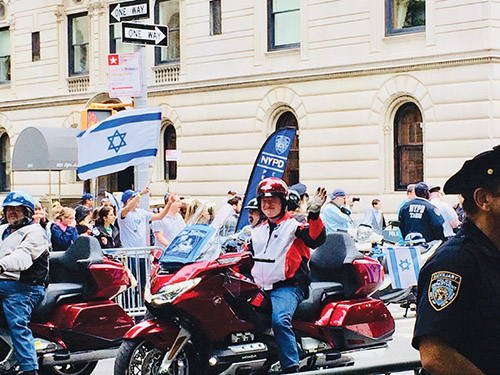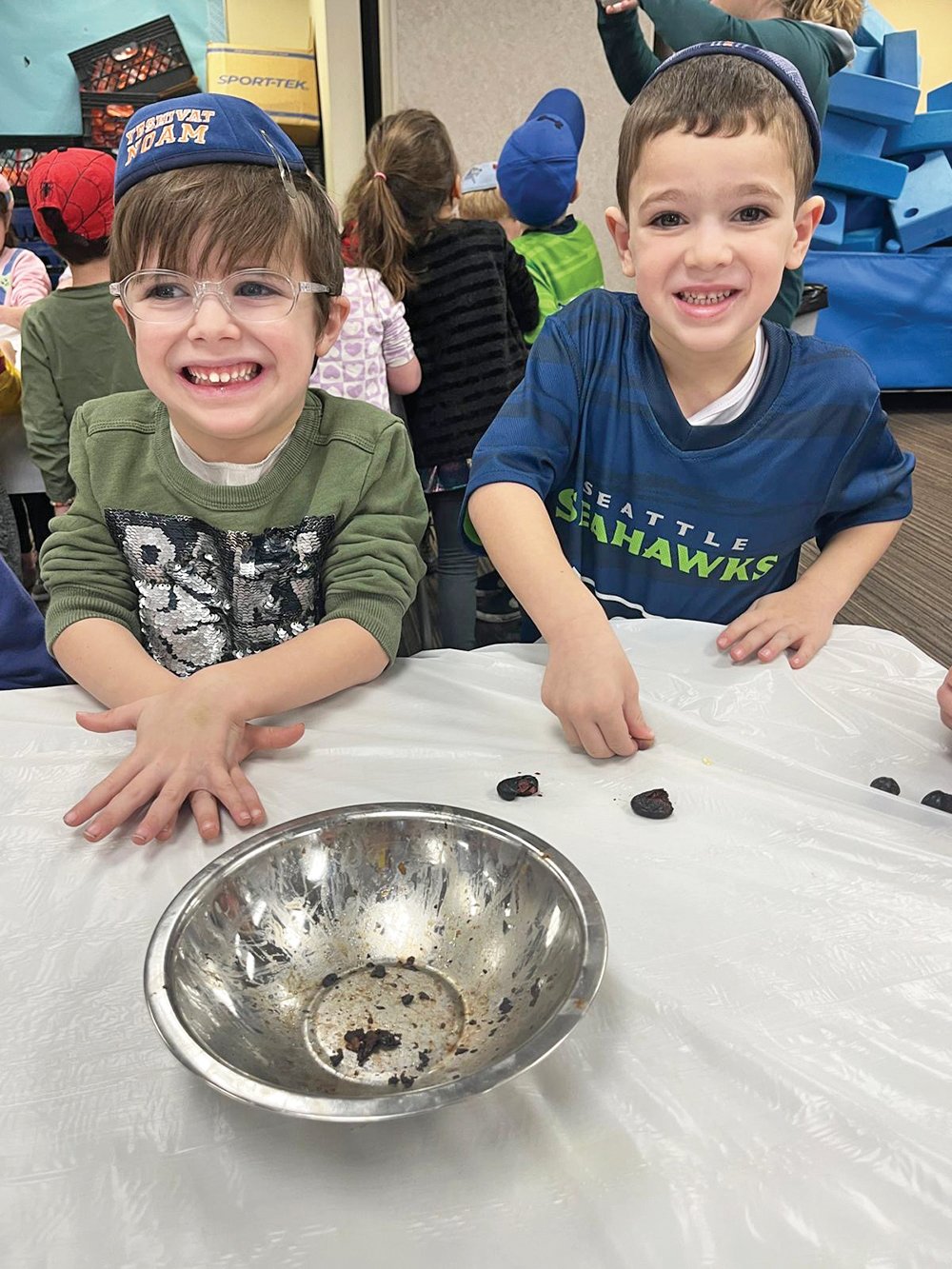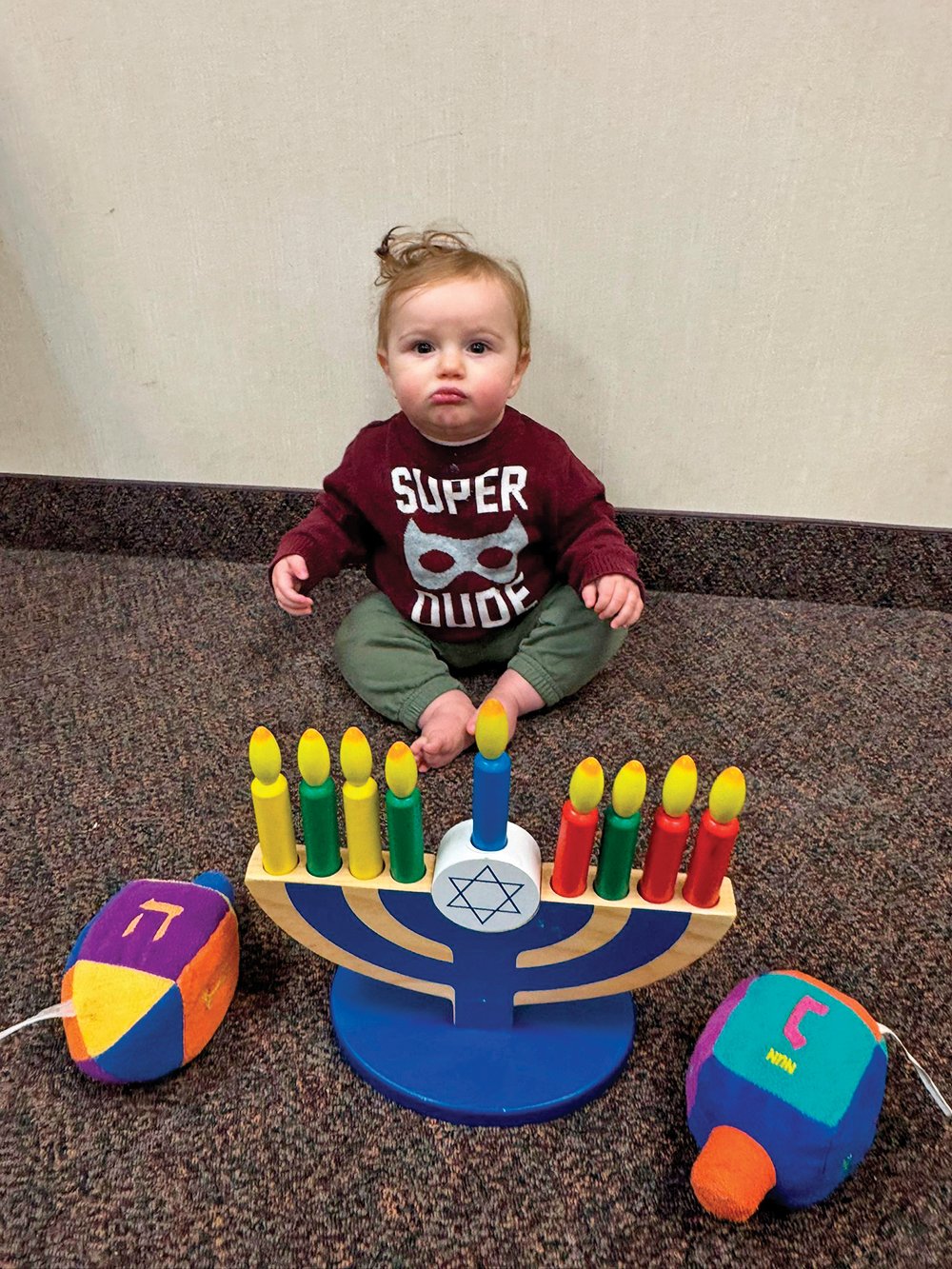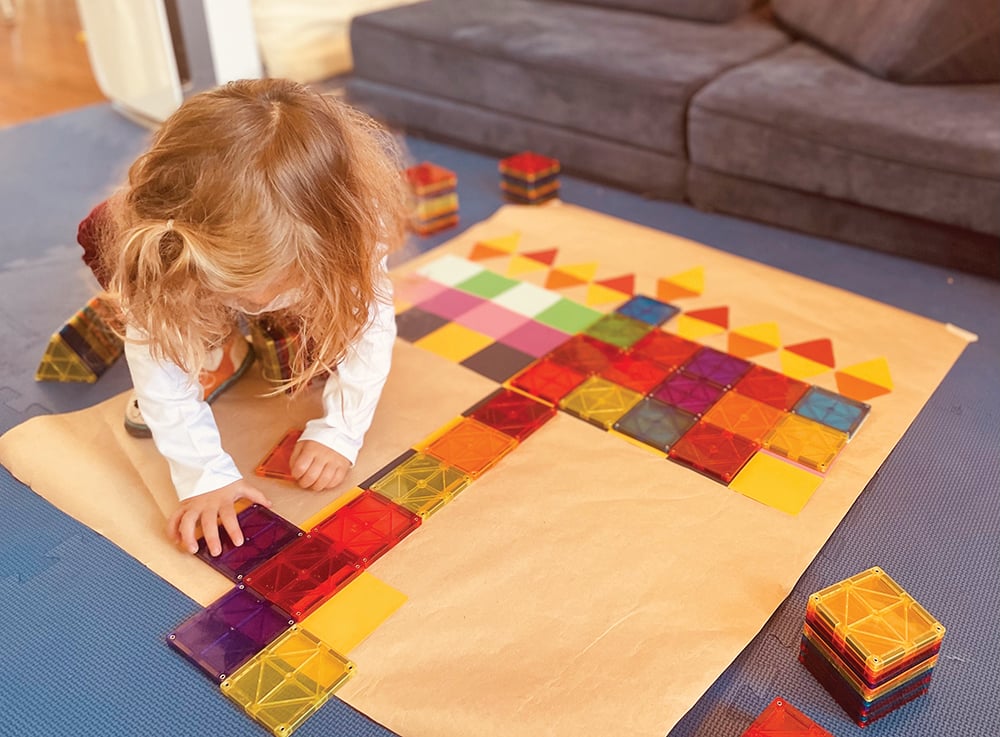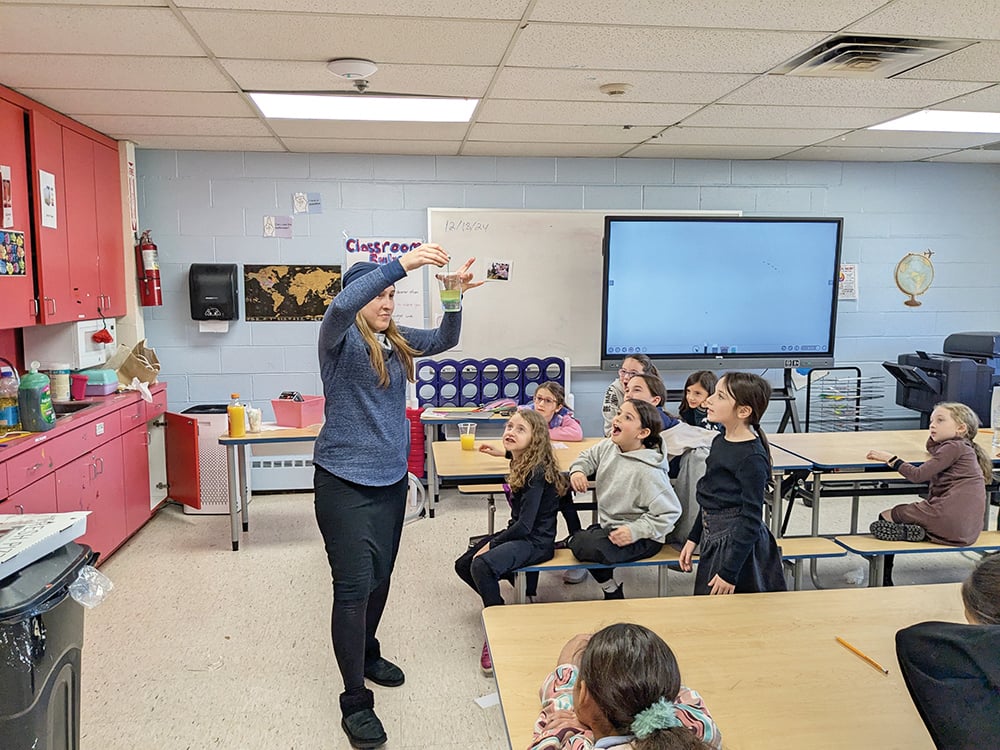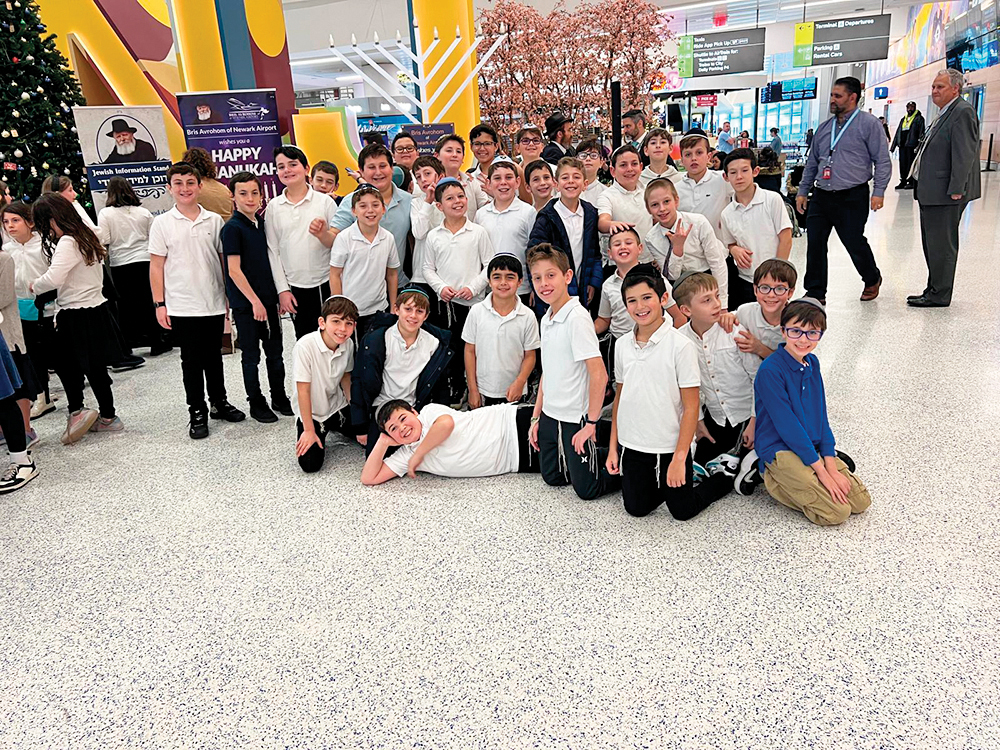

“You mean to say that there are motorcyclists who are Jewish? How can that be?” I am often asked that question because the traditional image of a motorcyclist is one of an outlaw, a bad guy with tattoos who belongs to a gang and terrorizes others. Jews are supposed to be people of the book. How can these different perceptions be reconciled? It may be that the stereotypical image of a motorcyclist may not always reflect the truth. Not only are there Jewish individuals who ride motorcycles, there are over three dozen clubs throughout the U.S., Canada, Australia and Israel that belong to the Jewish Motorcyclists Alliance (JMA). The individuals who belong to these clubs all share the passion to ride motorcycles and share the bond of their faith. They are composed of Jewish doctors, lawyers, businessmen and individuals from all walks of life. This past weekend I was privileged to join them in Cleveland, Ohio, where over 300 attendees gathered for the annual “Ride to Remember” convention.
The Ride to Remember is an event like no other. Not only do Jewish bikers from all backgrounds and locations gather together to meet and greet each other, they assemble for the higher purpose of promoting a Holocaust memorial educational project so that the world never forgets the Shoah. Every year a different city is chosen, one with a significant Holocaust memorial museum or theme of interest. The Ride to Remember, a police-escorted two-hour ride, is used as a means of raising significant funds for these projects, typically tens of thousands of dollars.
In previous years, money was raised for such causes as aiding the students at Whitwell, Tennessee, who created the famous Paper Clips Project. Last year, close to $50,000 was raised for the Sandra Bornstein Holocaust Education Center in Providence, Rhode Island. This year’s chosen charity was the Maltz Museum of Jewish Heritage, the Museum of Diversity and Tolerance in Cleveland, Ohio. Initial estimates were that the JMA was on track to raising close to a $100,000 to promote this worthy cause. Mr. Milton Maltz, himself, addressed the group, expressing much gratitude for their efforts and pledged to donate $25,000. He was extremely impressed by the dedication and efforts that the JMA and the local host club, the Shul Boys, generated, helping make this event take place so successfully.
In Parshat Balak we read the famous phrase that Bilam uses when he changes his curse on the Jewish people into a blessing: “Ma tovu ohalecha Yaakov, mishkinotecha Yisrael.” Translated, this means, “How pleasant are your tents, O Yaakov, your dwelling places, O Yisrael.” The weekend’s Ride to Remember demonstrated how the various Jewish motorcycle clubs could meet together and get along so pleasantly. These clubs have creative Jewish names such as the Lost Tribe of Virginia Beach, the Sabras of Atlanta, the Shul Boys of Cleveland, the Lonsmon of Boston, Hillel’s Angels of New Jersey, the Mazel Tuffs of Pittsburgh, the Chaiway Riders of Chicago, the Yidden on Wheels (YOW’s) of Toronto and Australia and my favorite, the Chai Riders of New York.
The convention aspect was very congenial as well. We shared meals, got to meet old friends from around the world and shared motorcycle news. Entertainment was provided as many visited the nearby Rock and Roll Hall of Fame and the other tourist sites in Downtown Cleveland. Kosher meals were made available. Shabbos services were enhanced by Rabbi Yossi Freedman, the Chabad rabbi, who arranged for davening and kiddush lunch. I assisted by making Friday night Kiddush, leading portions of the davening and singing the haftarah. It was quite a sight seeing individuals dressed in different forms of garb, from hasidic kapotas to traditional white shirts and dark jackets to the quintessential motorcycle vests with patches and pins, all singing Shabbos zemirot and celebrating Shabbos together. Several women were present as well, participating in the prayer services.
My favorite story was from a member of one of the clubs that participated in the event. He and several of his buddies had helmets equipped with special intercoms so they could communicate with each other while riding the many hours it took to get to Cleveland. While the scenery along the way was of beautiful forested areas, after several hours the ride started to become monotonous. All of a sudden, one of the Israeli riders turned on his intercom and slowly began singing “Adon Olam,” a song that is typically sung at the end of services in shul. Before he knew it, the other members of his riding group all turned on their intercoms as well and began singing this song together, along with many other traditional Jewish songs. This helped break up the monotony and added entertainment and extra spiritual value to what might otherwise have been a long, tedious, trip.
Motorcycle riders often explain that what draws them to this avocation is the feeling of freedom it engenders. Riding on a motorcycle leads to a sense of relaxation, mastery of one’s skills and communing with nature, experiencing the environment like no other feeling. When I visited Europe I learned of the legends of the Baal Shem Tov who would visit the forest to commune with nature and elevate his level of spirituality. Similarly, when I visited Tzfat in Israel last year we learned about R’ Isaac Luria, the mystical Ari, who would do this as well. If these two great rabbis were around today, they would surely appreciate and understand the passion that motorcyclists have for their activity. To combine the love of motorcycling with their Jewish heritage, promoting Jewish values such as tzedaka and Jewish pride is something quite unique that is gratifying and worthy of appreciation.
In Parshat Balak, Hashem was able to transform Bilam’s intended negative plans and turn them into something positive and productive for the Jewish people. So too, when Jewish motorcycle clubs turn an otherwise secular activity into a means for promoting Jewish values and pride, we can only assume that this is an activity God smiles upon and confers His blessings over. May they continue to be blessed as they perform this unique style of kiddush Hashem for years to come.
By Rabbi Dr. Avi Kuperberg
Rabbi Dr. Avi Kuperberg is a forensic, clinical psychologist. He is the president of the Chai Riders Motorcycle Club of NY/NJ. He leads the Summit Avenue Shabbos Gemara shiur and minyan in Fair Lawn, NJ. He can be contacted at Psychologist@Juno.com.
�


